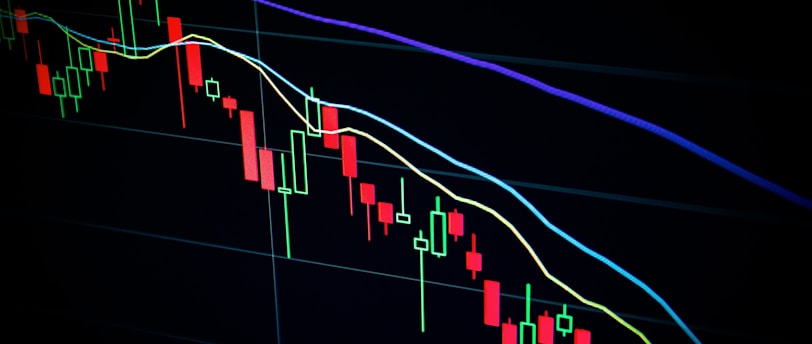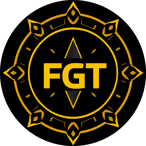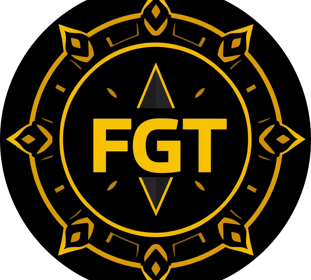Invest in the Future: Exploring FGT's Potential to Reshape Metaverse Economies
nvest in the future: Explore FGT’s potential to reshape metaverse economies through scarcity, utility, and cross-chain innovation.
Team Forgestone
3/13/20258 min read


Introduction to Metaverse Economies
Metaverse economies refer to the complex economic systems that operate within virtual environments, where users interact, create, and transact using digital assets. These ecosystems are not merely supplementary but are becoming increasingly significant in the digital landscape, fostering a new paradigm for social interaction, commerce, and entertainment. The underlying principle of metaverse economies is that they allow for the creation, exchange, and ownership of digital goods and services, often represented as non-fungible tokens (NFTs) and other blockchain-based assets.
Virtual economies operate similarly to traditional economic systems, incorporating elements such as supply and demand, currency, and trade. Participants engage in various economic activities, from participating in virtual marketplaces to establishing services within these digital spaces. For instance, platforms like Decentraland and The Sandbox provide users with the tools to buy, sell, and develop virtual real estate, significantly impacting the economy of the metaverse. Users can create their digital avatars, decorate virtual homes, or even host events, impacting the marketplace and contributing to a vibrant economy.
The significance of metaverse economies lies in their potential to redefine how we perceive value and ownership in a digital context. With increased interest from major companies and diverse sectors, virtual economies are being integrated into broader business strategies. Companies are investing in metaverse platforms and creating indigenous digital assets to engage with consumers in novel ways, further underscoring the importance of understanding these emerging economies. As we delve into the innovations offered by FGT, it becomes increasingly clear that these developments hold the potential to reshape the landscape of metaverse economies profoundly.
Understanding FGT: Features and Innovations
The Future Gaming Token (FGT) emerges as a pivotal player in the realm of digital currencies, particularly within the expansive landscape of metaverse economies. At its core, FGT is designed to facilitate transactions in virtual environments, bridging the gap between gaming and finance. This unique positioning is set against the backdrop of an increasingly interconnected digital ecosystem, where currencies must adapt to the evolving needs of users and developers alike.
FGT's tokenomics is an essential aspect distinguishing it from other cryptocurrencies. The token operates on a dual-layer structure that promotes stability and versatility. The first layer is anchored in supply control, ensuring a finite amount of tokens is available, which inherently fosters value appreciation over time. Coupled with a strategic rewards mechanism for users, FGT incentivizes engagement and encourages long-term holding. This well-calibrated approach not only enhances its relevance in the metaverse but also serves to attract diverse users from gamers to investors.
Technologically, FGT is built on a robust blockchain infrastructure that guarantees transparency and security in transactions. Leveraging smart contracts, it ensures that all agreements are fulfilled automatically when predetermined conditions are met, reducing the potential for fraud and enhancing trust among users. Furthermore, the token's interoperability with various platforms highlights its adaptability, allowing seamless integration into multiple gaming environments and applications.
FGT also pioneers innovative features such as community governance, empowering token holders to take part in decision-making processes regarding the ecosystem’s future developments. This participatory model not only fosters a sense of ownership among users but also ensures that the evolution of FGT remains aligned with its community's interests. Overall, FGT's holistic approach positions it as a formidable contender in reshaping metaverse economies, paving the way for new opportunities and experiences within the digital landscape.
The Concept of Scarcity in Virtual Economies
Scarcity is a fundamental concept that plays a pivotal role in virtual economies, particularly within the context of the metaverse. In traditional economic terms, scarcity refers to the limited availability of resources, which in turn drives demand and value. In the metaverse, this concept translates to digital assets, currencies, and experiences that are deliberately limited in supply. The ability to create a sense of scarcity fosters a unique environment where value can be generated and sustained over time. By ensuring that certain digital goods, such as virtual real estate or collectibles, are in short supply, platforms can enhance their desirability and increase the overall investment potential of assets.
FGT, or Fun Gaming Tokens, exemplifies how a digital currency can be strategically designed to leverage scarcity. The controlled distribution of FGT is instrumental in creating a balanced ecosystem whereby the demand is consistently aligned with limited availability. This careful architecting helps cultivate a robust metaverse economy, encouraging users to invest and participate actively. For instance, when users understand that the supply of FGT is capped, they are more likely to value their holdings, driving up demand and ultimately the market value of the token.
Several existing platforms within the metaverse have successfully implemented scarcity strategies that can serve as benchmarks for FGT's approach. For instance, platforms specializing in non-fungible tokens (NFTs) have thrived by creating limited edition works of art or collectibles. The rarity of these items not only boosts their value but also fosters a sense of community among collectors who are drawn to ownership of exclusive assets. Similarly, by adopting such strategies, FGT can cultivate an ecosystem where scarcity is a key driver of value creation, thereby enhancing its position within the larger metaverse landscape.
Utility of FGT: Enhancing User Experience
The Future Game Token (FGT) holds significant potential in reshaping user experiences within the metaverse. One of its core utilities lies in facilitating transactions, enabling users to buy, sell, and trade digital goods seamlessly. By leveraging FGT, users can engage in a more fluid economic environment, where digital assets have tangible value, thus enhancing overall user satisfaction. The ease of transactions not only streamlines the purchasing process but also contributes to the liquidity of assets within the metaverse, encouraging more participants to engage in economic activities.
Governance is another critical aspect where FGT comes into play. Holding FGT can grant users voting rights on important decisions related to the metaverse's development. This democratic approach allows participants to influence the direction of projects, including changes in policies or the introduction of new features. As users feel a sense of ownership and agency in the metaverse, their investment in FGT not only becomes financially advantageous but also fosters a stronger community. Such governance mechanisms enhance user experience by ensuring that the metaverse evolves in ways that are beneficial and desirable for its inhabitants.
Moreover, FGT can serve as an effective means of incentivizing participation. By rewarding users for engagement through FGT, platforms can stimulate activity and encourage community-building. This could include rewards for completing quests, participating in events, or creating content. Such incentives not only increase user retention but also promote a vibrant ecosystem where creativity and collaboration are at the forefront. As users are motivated to contribute more actively, the overall engagement within the metaverse is bolstered, leading to a sustainable economy.
In essence, the functionalities of FGT in transaction facilitation, governance participation, and user incentives significantly enhance the user experience within the metaverse, paving the way for lucrative and immersive economic interactions.
Cross-Chain Innovation: Bridging Metaverses with FGT
In an era where digital worlds are rapidly gaining traction, the significance of cross-chain compatibility cannot be understated. As various metaverses emerge, often built on different blockchain platforms, the need for a seamless interaction between these virtual environments becomes paramount. FGT, or Future Generation Token, is uniquely positioned to facilitate this interoperability, reshaping how users interact with diverse digital assets across multiple blockchain ecosystems.
FGT enables the bridging of metaverses through innovative cross-chain technology, which allows for the transfer of assets and information between disparate blockchain networks. This capability not only enhances user experience but also expands the economic opportunities within the metaverse. For instance, players can seamlessly move their digital assets, such as NFTs, from one metaverse to another, creating new avenues for engagement and commerce. As a result, FGT fosters a more connected and vibrant digital landscape.
The benefits of such cross-chain innovation extend beyond mere convenience. By eradicating the barriers that generally restrict asset movement and interaction between various metaverses, FGT promotes a more unified digital economy. This approach encourages the development of specialized applications and services that can cater to the needs of an increasingly complex user base. Additionally, it allows users to diversify their investments and experiences across multiple platforms without the hassle of converting assets into intermediary tokens.
Ultimately, the integration of FGT within the framework of cross-chain compatibility represents a significant step towards the realization of a cohesive metaverse ecosystem. This advancement not only bolsters the functionality of digital assets but also empowers users to partake in a richer and more interconnected virtual economy. As metaverses continue to evolve, FGT’s role in bridging these environments will be vital to the sustained growth and innovation of digital economies.
Future Trends in Metaverse Economies with FGT
The evolution of metaverse economies is poised to transform the digital landscape in unprecedented ways, and FGT (Future Gaming Tokens) stands as a critical element in this transformation. As technology continues to advance, we can expect a surge in the development of more sophisticated virtual environments that seamlessly blend augmented reality (AR), virtual reality (VR), and blockchain capabilities. Such advancements are likely to enhance user experiences, enabling deeper immersion and interactivity within the metaverse.
Furthermore, the anticipated growth in user adoption rates will play a significant role in shaping these economies. The increasing familiarity and comfort with digital platforms will encourage more individuals and businesses to engage in the metaverse, thereby boosting demand for virtual goods and services. FGT is expected to facilitate these transactions, promoting a fluid exchange of value and enabling consumers to transact effortlessly across various virtual worlds.
Moreover, evolving business models will likely emerge within the metaverse, driven by innovative applications of FGT. Traditional economic paradigms will shift as decentralized finance (DeFi) and crypto-integration become the norm. New revenue streams will arise, including virtual real estate development, digital asset trading, and participatory experiences that incentivize user engagement. This shift in economic structure will require companies to adopt more agile strategies that not only leverage FGT but also adapt to the dynamic demands of metaverse populations.
As we anticipate these trends, FGT’s role will become increasingly pivotal in enabling seamless transactions, fostering community building, and encouraging participation in virtual economies. By aligning our understanding with technological advancements and the projected user growth, investors and developers alike can better navigate the evolving landscape of metaverse economics.
Conclusion: Investing in the Future of the Metaverse
As we navigate through the rapidly evolving landscape of the metaverse, it is essential to understand the significant role that innovative technologies, such as FGT, play in reshaping virtual economies. FGT, or Future Growth Token, stands as a promising asset that possesses the potential to revolutionize how digital transactions occur within virtual environments. Its design aims to facilitate seamless interactions among users, developers, and investors, ultimately enhancing user experiences in the metaverse.
The importance of FGT lies not only in its operational framework but also in the broader implications it holds for investment in virtual assets. As organizations and individuals increasingly recognize the metaverse as a viable platform for economic activities, the integration of tokens like FGT paves the way for new business models and revenue streams. Investors should remain attentive to these developments, as they create unique opportunities to participate in a flourishing digital economy.
Moreover, being informed about the innovations surrounding FGT and related technologies is crucial. The distinct features that FGT brings to the digital economy—such as security, tokenization, and decentralized transactions—offer significant advantages for both users and investors. Staying updated on these advancements can lead to informed decision-making, ensuring that investments in the metaverse are both strategic and beneficial. As the digital landscape continues to evolve, recognizing the potential of tokens like FGT will be vital for those looking to capitalize on the future of virtual economies.
In conclusion, the case for investing in FGT and understanding its implications for the metaverse is compelling. As this new realm of economic activity continues to unfold, engaging with these innovations can offer substantial rewards for proactive investors.


